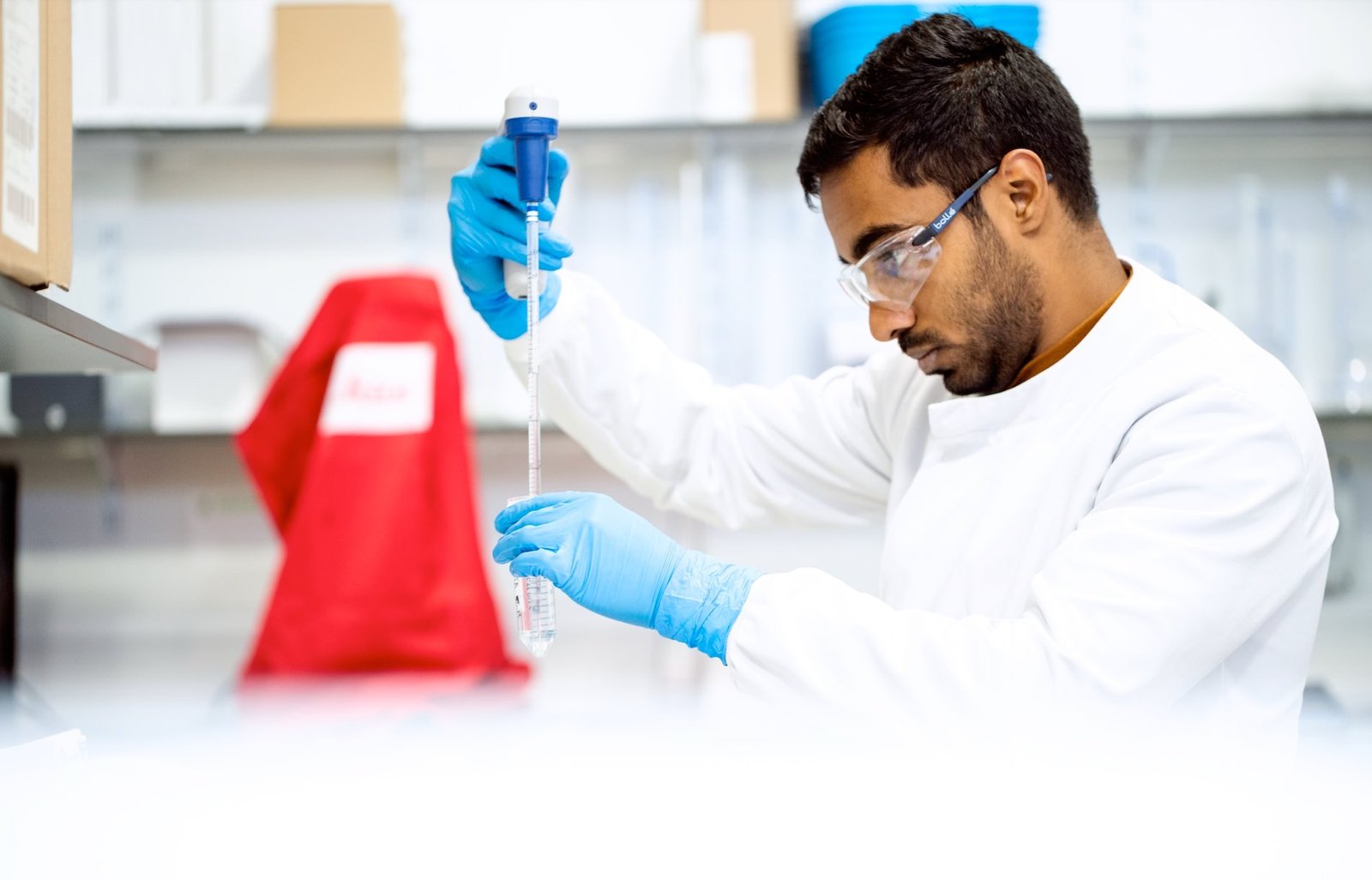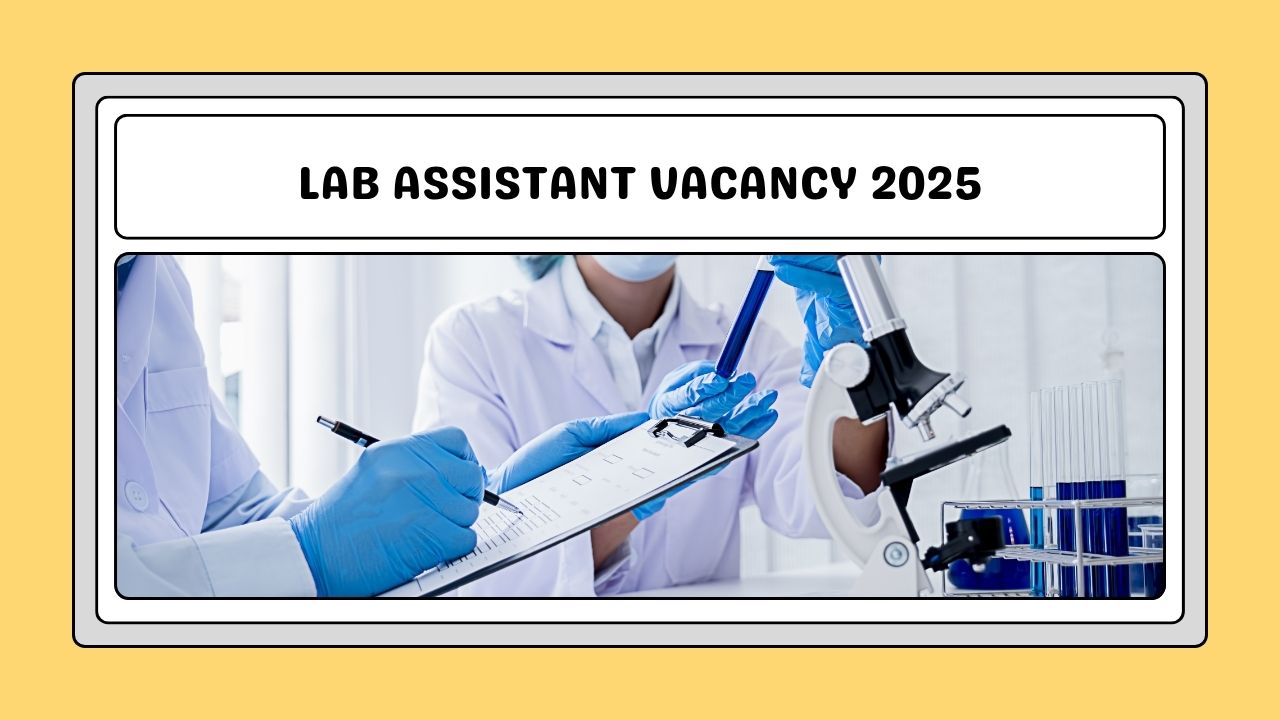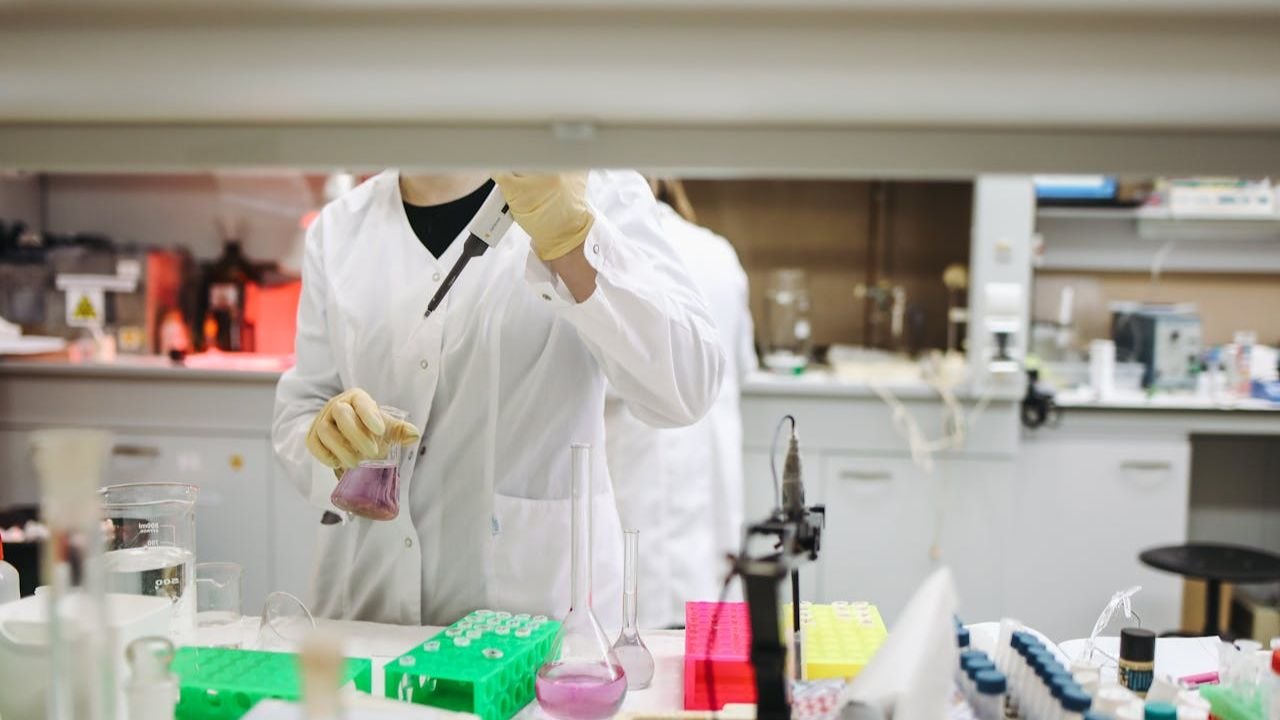Upon mention of the word “lab,” some people might immediately conjure up images of test tubes, white-coated scientists or equipment that examines samples. However, a lab is not only that, as it is the core area of modern science, research and medical diagnosis. Labs whether in hospitals, universities, industries, or research institutes, are essential in the process of solving complex problems, diagnosingdiseases, and making innovations. Well, we will discuss all you need to know, including what is lab, what is a lab technician is, what “lab” means, and the full form of “lab.”
What is Lab?
The term lab is short for laboratory. A laboratory is a controlled environment designed for experiments, research, and testing. It provides the tools, equipment, and conditions necessary for professionals to conduct studies, verify theories, and produce accurate results. Science is not the only area of labs. These are found in the fields of medicine, industry, environment, forensics and education. An example is in hospitals where blood and tissue samples are tested in the medical labs to identify whereas laboratories in the industrial sector are specialized in quality assurance and safety of the products. On the same note, forensic laboratories examine evidence at the crime scene to help law enforcement agencies.
A lab, in simple terms, is where ideas are put to the test, where knowledge comes as a result of experiments and where data is the center of discoveries.
What Does Lab Stand For?
The word lab is simply an abbreviation for laboratory.
- Lab Full Form: Laboratory
- Meaning: A structured place designed for research, experiments, analysis, or diagnostic testing.
Whether you are in a school chemistry lab or a state-of-the-art genetic research lab, the purpose remains the same—to investigate, test, and learn in a controlled environment.
What is a Lab Technician?
A lab technician is a trained professional who works within a laboratory to support scientists, doctors, or researchers. They are the backbone of labs because they handle the practical aspects of laboratory work. Unlike researchers who focus on developing theories, technicians ensure that experiments and tests are performed accurately and safely.
Lab technicians usually have a great background in biology, chemistry, or related sciences. They are adept at working with instruments in laboratories, sample progress, and records. They play an important role in ensuring there is a gap between the knowledge gathered in the science field and the practical application of this knowledge to the outside world.
What Does a Lab Technician Do?
A lab technician’s responsibilities vary depending on the type of laboratory, but some core duties remain consistent. Here’s an overview:
| Task | Description |
| Sample Collection | Gathering blood, urine, or tissue samples in medical labs or material samples in industrial labs. |
| Conducting Tests | Performing experiments using lab instruments like microscopes, centrifuges, and analyzers. |
| Data Recording | Documenting results, preparing reports, and analyzing outcomes. |
| Equipment Maintenance | Ensuring all lab tools and machines are calibrated and functioning properly. |
| Quality Control | Following strict protocols to maintain accuracy and reliability. |
| Safety Compliance | Adhering to safety rules to protect themselves and others in the lab. |
| Research Support | Assisting scientists in experiments, trials, and research projects. |
In essence, a lab technician ensures that the lab runs smoothly, experiments are error-free, and accurate results are delivered.
Fields Where Lab Technicians Work
Lab technicians are not restricted to one industry. Their skills make them employable in a variety of fields, including
- Medical Laboratories: Informational facilities in the hospital and diagnosis centers where tests are conducted on blood, tissues and others by technicians.
- Industrial Laboratories: Manufacturers and industrial firms that require testing on the quality of food, drugs or chemicals.
- Research Labs: Universities, private companies, and government organizations that take part in Scientific discoveries.
- Forensic Laboratories: Law enforcement agencies Interpret DNA, fingerprint or toxicology evidence.
This diversity means that becoming a lab technician opens doors to many career paths.
Lab Technician Courses
To become a lab technician, one must complete specialized training programs. The choice of course depends on career goals and educational background.
| Course Level | Course Name | Focus |
| Diploma | DMLT (Diploma in Medical Laboratory Technology) | Medical laboratory techniques |
| Diploma | DCLT (Diploma in Clinical Laboratory Technology) | Clinical-focused lab techniques |
| Diploma | Diploma in Laboratory Techniques | General laboratory work |
| Bachelor’s Degree | BMLT (Bachelor of Medical Laboratory Technology) | Advanced and broader knowledge |
Diploma programs usually take 1–2 years, while bachelor’s degrees are 3-year programs.
Skills Required for a Lab Technician
To succeed as a lab technician, both technical and soft skills are required.
- Technical Skills: Knowledge of biology/chemistry, equipment handling, sample preparation, and data analysis.
- Soft Skills: Attention to detail, patience, organization, teamwork, and communication.
A perfect balance of these skills ensures accuracy in work and growth in the career.
Lab Technician vs Lab Technologist
The terms lab technician and lab technologist are often confused, but there are differences.
| Feature | Lab Technician | Lab Technologist |
| Education | Diploma or Associate Degree | Bachelor’s Degree or Higher |
| Responsibilities | Routine lab work, assisting scientists | Advanced research, supervisory roles |
| Career Growth | Can become a technologist | Can advance to management/research lead |
In short, a technologist is a more advanced role compared to a technician.
Qualifications and Certifications
To become a professional lab technician, you may require:
- Education: Diploma (DMLT/DCLT) or a bachelor’s degree (BMLT).
- Certifications:
- NABL (National Accreditation Board for Testing and Calibration Laboratories)
- ICMR (Indian Council of Medical Research)
- ASCLS (American Society of Clinical Laboratory Science) – international certification
These certifications strengthen credibility and improve job opportunities.
Lab Technician Salary in India
The salary of a lab technician depends on experience, location, and specialization.
- Freshers: ₹2.5 – ₹3.5 LPA
- Experienced Professionals: ₹4 – ₹6 LPA
In metropolitan cities, salaries are usually higher due to demand and cost of living.
Why Choose a Career as a Lab Technician?
It is not only a job to be a lab technician; it is a career that makes a difference. All the tests carried out by a technician aid doctors in the diagnosis of illnesses, make industries more secure in their products, or help researchers arrive at discovering cures and breakthroughs.
In case you have a hankering after science and practical problem solving, then this career provides:
- Stable job opportunities
- Diverse career fields (medical, forensic, research, industrial)
- Contribution to healthcare and science
- Growth through further education and certifications
Conclusion
More than the mere seasonings, anise and star anise contain actives that have been utilized traditionally for centuries and are now scientifically affirmed, and they are potent natural medicines. Anise and aniseed health benefits are tremendous; they improve digestion, drive bloating, enhance immunity, provide a woman with a hormonal balance, and relieve menstrual pain and cramping, among other anise benefits.
The frequent use of anise tea can lead to a calming effect, improvement of sleep, and elimination of the cough and cold. Meanwhile, the question remains in the minds of many as to whether anise elevates blood pressure, the answer is negative; however, it can normalize blood pressure in a healthy manner.
Frequently Asked Questions (FAQs)
Q1: What is the lab full form?
Ans: The full form of lab is Laboratory.
Q2: What is the role of a lab technician?
Ans: A lab technician collects samples, conducts tests, records data, and ensures lab equipment functions properly.
Q3: Which degree is best for a lab technician?
Ans: A Diploma in Medical Laboratory Technology (DMLT) or a Bachelor’s in Medical Laboratory Technology (BMLT) are the most popular options.
Q4: What is the salary of a lab technician in India?
Ans: Freshers earn around ₹2.5–3.5 LPA, while experienced professionals can earn ₹4–6 LPA.
Q5: Is lab technician a good career?
Ans: Yes, it offers stability, multiple career opportunities, and the satisfaction of contributing to healthcare and science.
Read Our More Blogs:- Metropolis Labs | BL – Your Trusted Partner for Health and Diagnostics



